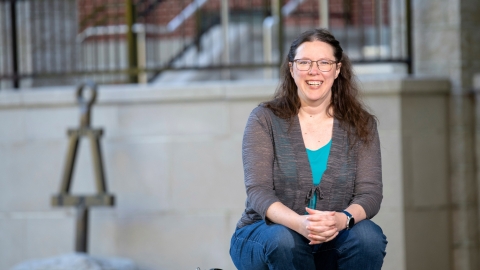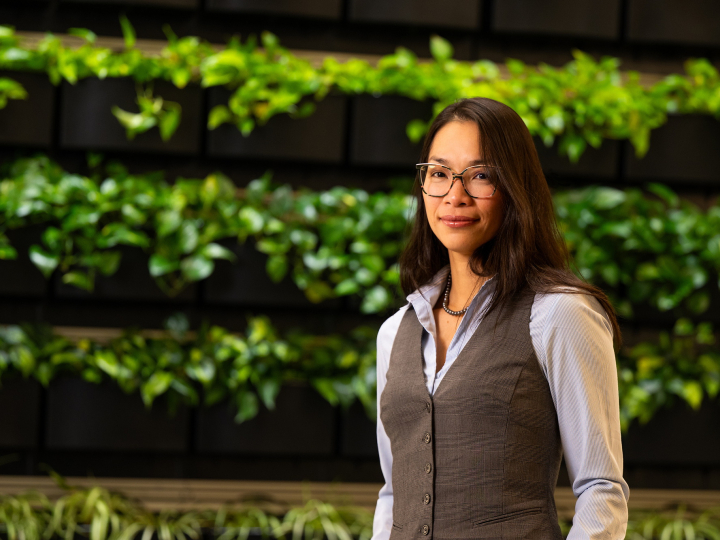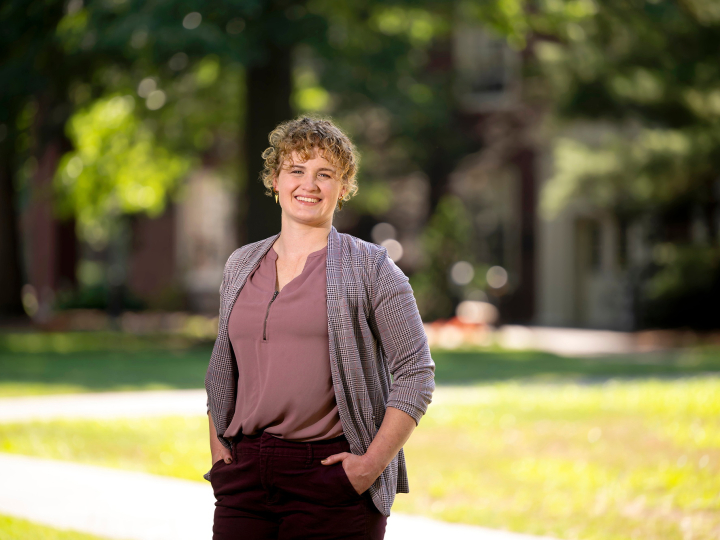
Dabrina Dutcher, Chemistry and Chemical Engineering
October 7, 2016
I think everyone looks for that thing that helps the world make sense to them. For me, it was chemistry.
When Professor Dabrina Dutcher was accepted as a high school student into the Technical Mentor Program at the Naval Weapons Center, China Lake — a research and development base in California — she was thrilled. The two-year program offered wide-ranging opportunities to learn instrumentation and other processes, and she felt instantly at home.
"I think everyone looks for that thing that helps the world make sense to them," says Dutcher, a professor of chemistry and chemical engineering. "For me, it was chemistry. It explained why a door was hard, or water, liquid."
Luckily for her, while she was working there, the naval base renovated its stock room. "There were lots and lots of jars where the labels had fallen off or faded after 50 or 60 years. So my job was figuring out what was in each of these jars so we could dispose of them appropriately. That program changed my life."
Now she involves her students in similarly engaging ways to make chemistry more immediate.
"Instead of standing up there and lecturing about each of the EPA criteria pollutants, I'll have members of the class pick one and do a presentation on where that pollutant's from, how it's made, and what the levels and trends are like. I think they get more out of it when they do the research and teach each other."
Dutcher also tries to ground students' learning experiences in contemporary issues. "We have a bunch of students working on e-cigarettes, looking at what comes out of them," she explains. "We have the instruments to measure the size distribution of those particles. It's very 'real world.' "
Some students lend support to Dutcher's own research projects, including one she has pursued for five years with Professor Timothy Raymond, chemical engineering. "We look at how certain particles that form from gases interact with water, to see if they can form clouds. Cloud formation is the area with the largest uncertainty in global climate models," she explains. "We've had up to eight students working on this project during summers, doing measurements and combining different chemicals to see how it affects results."
It's especially gratifying when the work has direct applications for solving global problems. As a specialist in particulate air pollution, Dutcher worked for 10 years in the private sector, doing research and development for environmental instrumentation used by the Environmental Protection Agency and universities.
"Just in the last couple of years, the World Health Organization has come out and said that 6 million people die prematurely every year because of excessive air pollution," she says. "The scale of the problem is stunning."

